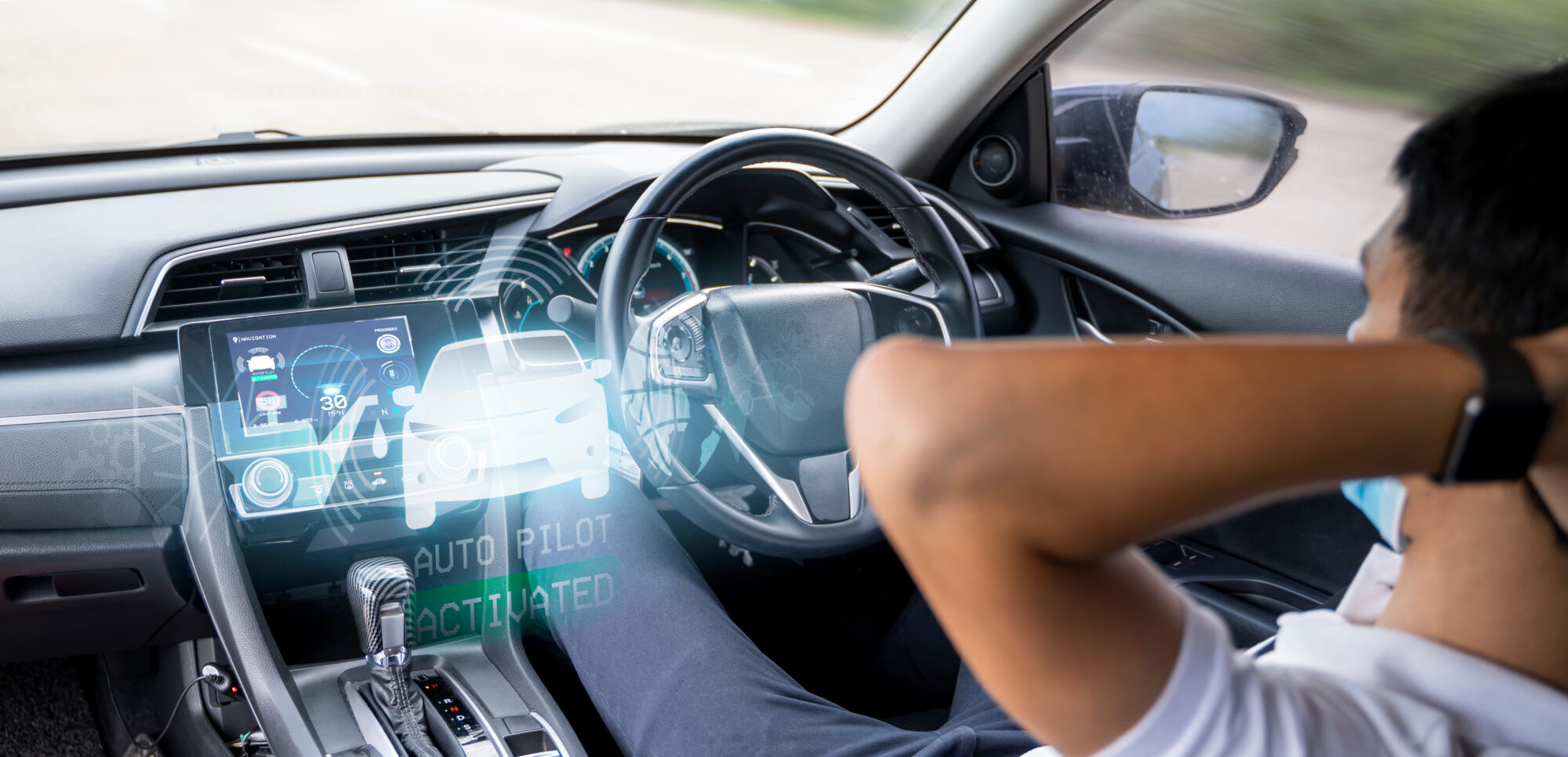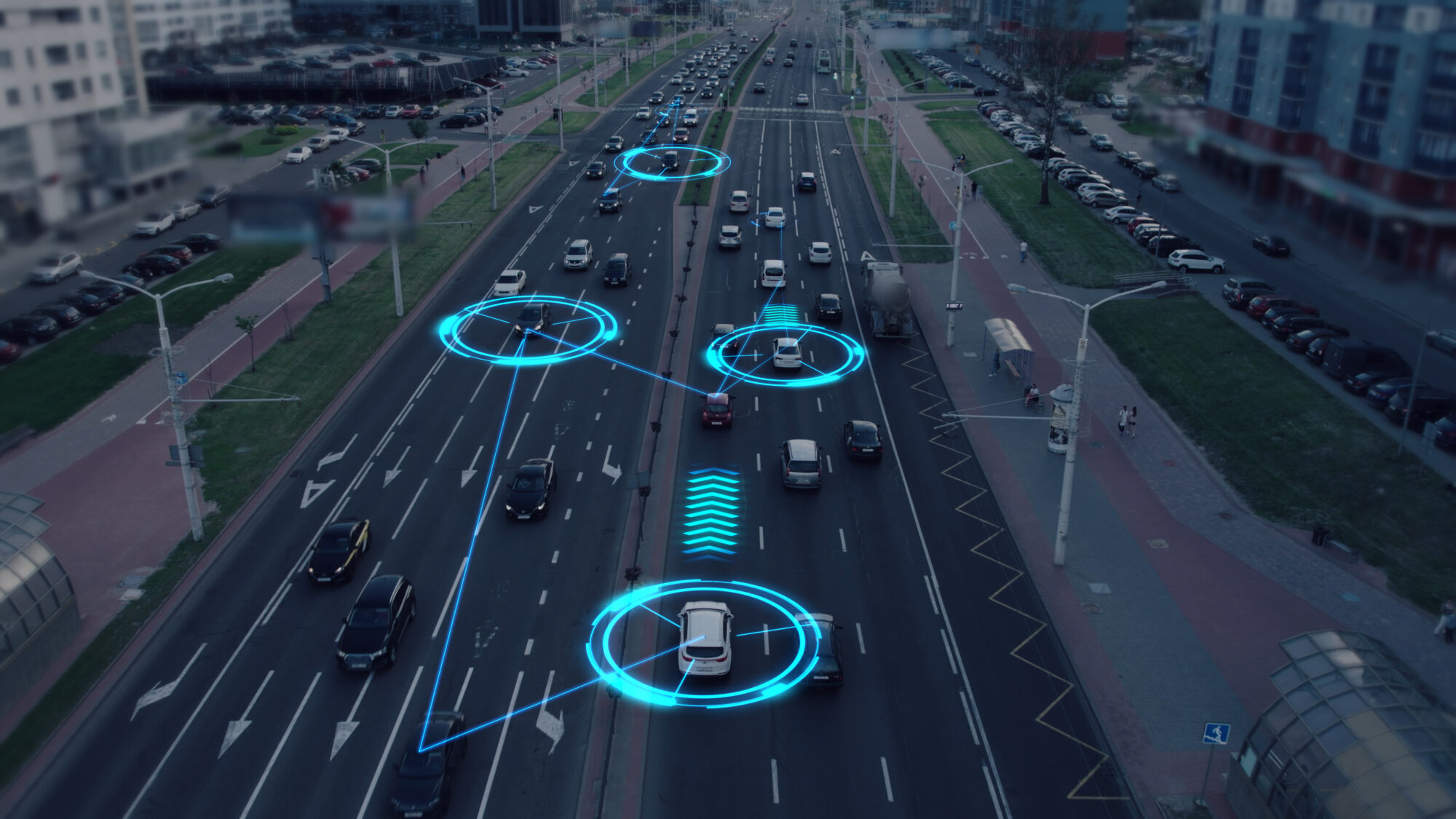Are Self-driving cars safe?
Human error behind the wheel is a classic example of multitasking gone wrong. We are made to believe that we are born to multitask, but sometimes our brains are like a browser with more than 20 tabs open, trying to juggle these tabs like one of the tabs playing Instagram reels, while the other is trying to remember if we switched of the heater at home or texting to your loved one instead of watching the road. No wonder we miss the stop signal! We are so scared of the idea of self-driving cars, as we always have the question. Are self-driving cars safe? And let’s be honest, we all have the idea that we are good drivers, yet there are minor to major accidents due to human error. According to the World Health Organization, as of 2023, about 3000 people die of road accidents every day. Maybe accidents are not just due to the driving skills, but are of overconfidence, distractions, and at times negligence. At least, Self-driving cars don’t have to deal with human shortcomings, as they don’t sleep, they don’t get angry, or get drunk, so countries like Singapore are promoting Self-driving cars as their country’s smart city initiatives. Behind this ambitious initiative, eSIM technology’s seamless connectivity lies as the powerful supporter. With ESIMWORLD.net solutions, and specifically the ESIMSINGAPORE.net service, offer endless connectivity that assists navigation data, real-time traffic updates, and cloud-based computing power. This invisible architecture of networks is the biggest source of efficiency for models like self-driving cars.
How Self-Driving Cars Could Reshape Our World
The question remains: are self-driving cars safe? Many countries across the globe have taken initiatives to promote self-driving cars or vehicles for the benefit of their citizens. Countries like the European Union, the United States, China, and Singapore are investing billions to build an ecosystem to foster this new technology at their heart of their innovation. Self-driving cars are powered by the latest AI technology, which uses an immense amount of data to achieve the astronomical success of self-driving cars. Yet, like any other technology, self-driving car pros and cons are to be considered carefully.
Sci-fi movies like “minority report” are no longer fictional, and they have become a reality. Imagine yourself waking up in a city where traffic jams are no longer a reality, but rather a relic of the past. By tapping on your mobile screen, you will be able to get a ride, and you don’t have to argue or fight for your fare with the driver; simply slide through streets that once overflowed with cars parked and enjoy a peaceful day going about your work. This is the dream of all mankind, which these countries are trying to achieve; maybe this will be a day in the future. Some of the recent developments in the area of self-driving cars are:
Urban Mobility Transformation
Initiatives have already taken place in cities like Oslo, Barcelona, and Zurich for testing autonomous vehicles (AVs) on fixed routes. Surprisingly, this small initiative answers our major concern of “Are self-driving cars safe?” They have found that these autonomous shuttles and minibuses can provide efficient and demand-responsive transport that complements traditional transportation. This initial initiative can also be the mother of a future seamless mobility ecosystem. Who knows, we might even get to witness some of the greatest innovations, like autonomous electric bikes or even flying machines. Countries like Singapore are strongly pushing themself towards smart city initiatives, one of their agenda is for the promotion of self-driving cars. Irrespective of all their initiatives, the question “Are self-driving cars safe?” remains the same, and they do agree upon the known self-driving car pros and cons. As for every innovation, there are always going to be some pros and cons. Let’s dive deeper to understand the self-driving car pros and cons.
Pros of Self-driving cars
Remember, did we all wish our cars could drive by themselves so we could take a nap, binge-watch the latest Squid Games, or finally finish the novel you started in 2022? Pinch yourself- because the future is here, and yes, that’s true, cars do have an autopilot option these days. Self-driving cars offer a mix of significant benefits and a wide range of challenges that directly impact society, economy, and daily life. Some of the pros of Self-driving cars are as follows: to answer the question, “Are self-driving cars safe?
- Increased safety: Autonomous cars are designed to eliminate human errors by using advanced sensors (which are hyper-sensitive), AI, and real-time data processing for the detection of hazards and make quick decisions. Waymo, research suggests that self-driving cars can reduce minor to major accidents up to 85% potentially saving tens and thousands of lives annually.
- Reduced traffic congestion: As the self-driving cars are connected through technology as they can aid in the optimization of traffic flow and reduce congestion caused by continuous braking and acceleration, which in turn can also reduce fuel consumption by 20-30%
- Greater accessibility: For a major sector of the population, like the elderly and disabled, who cannot commute by themselves, can use self-driving cars.
- Environmental benefit: Optimized routing, less fuel consumption, or the use of EV-powered vehicles can reduce emissions and contribute to sustainability goals.
- Economic Efficiency: On average, the costs related to property damage, injuries, and fatalities are very high; utilizing self-driving, these costs can be drastically reduced. Increased productivity is possible as people can work peacefully while they commute.
- Urban Transformation: Less need for parking could free up valuable urban lands that could be used for other purposes.
Cons of Self-Driving Cars
For every innovation, there are both upsides and downsides; self-driving cars pros and cons are just the same. Self-driving cars offer an alluring lifestyle that includes napping, snacking, and binge-watching Squid Game, all while your car handles all the tasks. But before you trade your steering wheel for a pillow, let’s hit the brakes and think: what if your robot car misunderstands a tumbleweed for a pedestrian or decides to do a software update in the middle of the road? And in the worst-case scenario, your car gets hacked. Instead of going to your house, what if it takes you to a remote location? Scary as they may sound, here are some of the cons of self-driving cars that we should consider:
- Technological limitations: Sensor technology have their own limitations, they struggle to function in poor weather and current AI models may not be able to handle current unexpected scenarios or compex road conditions.
- Cybersecurity Risks: Hacking is a serious threat to self-driving cars, and increased connectivity makes self-driving cars vulnerable to hacking and remote control.
- Job Losses: One of the biggest threats of all is the displacement of millions of professional drivers, leading to serious economic and social disruption.
- Ethical and Legal Challenges: Questions of liability and insurance remain unresolved. To design a perfectly moral decision-making process, a self-driving car remains questionable
- Cost and Accessibility: High initial costs may limit access for some populations, potentially increasing inequality.
- Societal changes: A New form of dependency might develop due to the over-reliance on self-driven cars, and one might even forget how to drive. There are also concerns about “Zombie cars,” which means empty vehicles circling without parking to avoid parking fees which would worsen the congestion and pollute the environment.
The impact that self-driven cars will have on human society
Innovation has consistently transformed the lives of humanity. While some innovations that seem so obscure in the beginning have later changed the lives of mankind, will that answer the question, Are self-driving cars safe? The answer is still 50-50, self-driving car pros and cons give us a clear picture that we seriously need to develop well-structured regulations to make them completely accessible for the general public. Millions losing their jobs to robots is a serious blow to professional drivers, so countries should consider upscaling their skills to match this new era of technology. Countries like Singapore are making serious efforts to address some of these key issues, but only time will let us know how far it is feasible. The birth of self-driving cars has already created a dramatic impact on the lives of humans, irrespective of the question are self-driven cars safe.
Conclusion: The double-edged sword of Innovation
So, are self-driving cars truly safe? The answer is complex. On one side, a self-driven car promises to drastically reduce road accidents, save millions of lives that are lost to road accidents, and revolutionise our daily commute. On the other hand, safety isn’t just about avoiding accidents, but it’s also about ensuring societal and ethical stability as we hand over more control to machines. Self-driving car pros and cons pose the question: Will these cars make our roads safer? Or will they introduce newer issues we have never imagined? Will these technologies help bridge the gap for the unmet group of people or widen the gap between the people who can afford that of those who cannot afford it? Will there be any human control over these high-tech machines? Perhaps the most important question isn’t whether “are self-driven cars safe?” But are we ready to adapt to the new change it will bring to our society? As we race ourselves towards this automated AI-driven world, we should ask ourselves the question: “Will we control the technology, or will it start controlling us?”. If we try answering this question, it will not only shape our roads but also the very fabric of our lives.




































